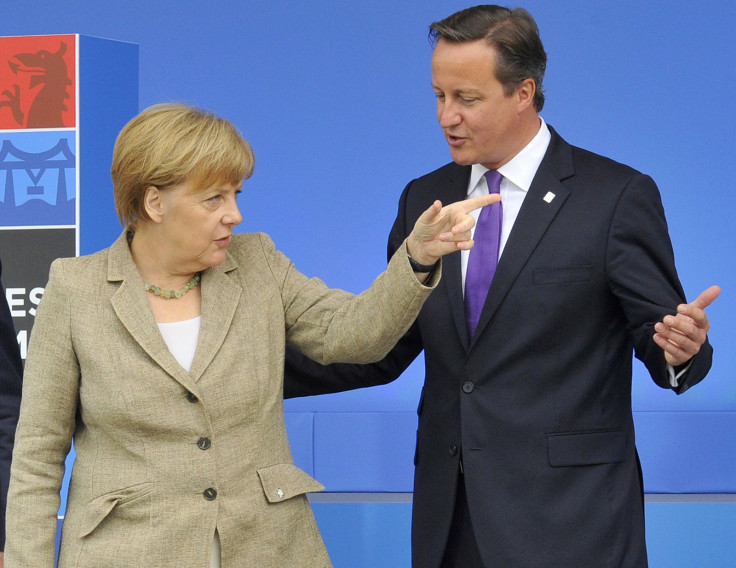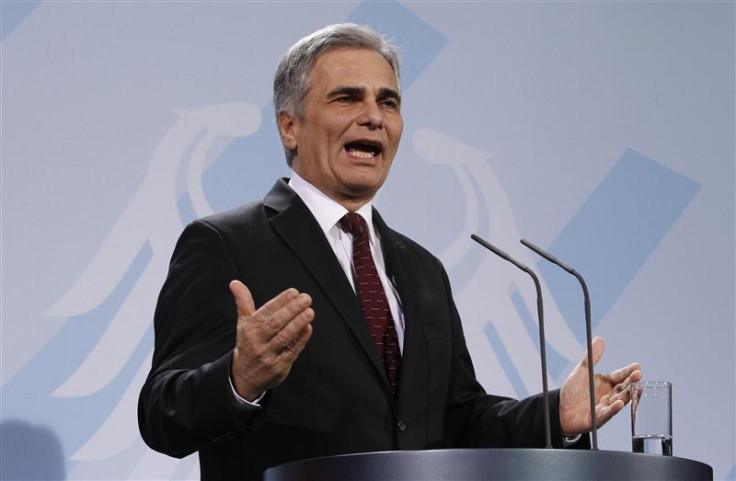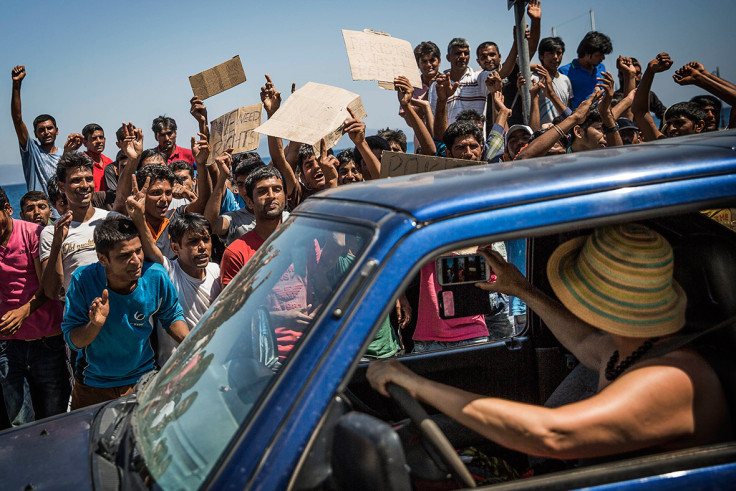EU referendum: How Europe's refugee crisis is scuppering David Cameron's reform dreams

You don't get far in Europe by irritating the German chancellor, Angela Merkel, who is de facto leader of the European Union. But David Cameron, the British prime minister seeking to renegotiate the terms of his country's membership, has got Merkel's hackles up over the refugee crisis.
Cameron called a referendum on the UK's membership of the EU to settle a debate that has been raging for a generation. He wants the UK to stay in, but has promised voters he will win a number of reforms to return powers from Brussels to national parliaments − something he can only achieve by convincing the 27 other heads of government to agree with him. And he's not doing himself any favours.
Hundreds of thousands of migrants and refugees fleeing poverty, war and oppression, are arriving on European shores. Many are dying on route, suffocating in the backs of lorries or drowning in the Mediterranean as they cross in overcrowded, ramshackle boats. This is regarded as a Europe-wide problem.
Yet Britain is doing far less than many others to look after those seeking asylum. Germany is expecting to take in as many as 800,000 refugees in 2015 alone, up fourfold on 2014. Many ordinary Germans are going out of their way to welcome the refugees, holding up supportive banners at football matches, painting positive slogans on public transport and donating food and clothing. The UK took just 10,000 refugees in 2014. It is unlikely to take many more this year.
Now the Germans are lashing out at Cameron. Stephan Mayer, a home affairs spokesman for Merkel, told The Times the UK-German relationship is at risk because Cameron's government is not doing enough to share the refugee burden. "I have always had sympathy and understanding for the British role in the EU and the demands for renegotiation," Mayer said. "But we are now in such a huge humanitarian catastrophe, I do not have any sympathy or understanding for one-country-orientated positions."
The Austrians have also stuck the boot in. According to the Telegraph, Werner Faymann, the Austrian chancellor, said: "When I think of the British, who have their own catalogue of demands, why should we do anything for them? Because, you have to say, solidarity is not a one-way street." Faymann is known to be hostile to Cameron's bid to reform the EU. But we should expect the Italians, Greeks and Hungarians − who are all at the coalface of the refugee crisis − to express similar frustrations at the British response.

Pawel Swidlicki, an analyst for the Open Europe think tank, told IBTimes UK that the refugee crisis and Cameron's reform and renegotiation agenda are "clearly distinct issues".
"That said, there is a risk that if the UK is perceived as not willing to do its bit to help other countries then why should other countries go out of their way to help the UK," Swidlicki said. "I certainly think that has been one problem the UK government has had. It has been sitting on the sidelines and has been very critical, but it hasn't really put forward viable alternative solutions to how Europe could tackle the refugee crisis."
Cameron has to reconcile his desire to remain in the EU; the need to win support from European allies for his reform agenda, which he then has to sell to the British public ahead of the referendum; Europeans' demand that the UK do more to share the moral burden of looking after refugees; and a broadly Eurosceptic public which could yet vote to quit the EU if antagonised by, for instance, being coerced into taking more refugees than popular opinion would accept. Cameron has to make a choice about who to annoy and who to keep onside.
There is one weapon in his arsenal, however: the rest of the EU wants the UK to stay in. If he can convince Merkel and others that committing more British money to the refugee crisis, and taking significantly more asylum seekers, would make Brexit more likely, they may agree to suck it up for now − albeit reluctantly − on the proviso that they will extract a price later down the line, after the referendum. But that is a hard sell. And Cameron is already reiterating his case for the UK not to take in any more refugees.

"We're taking action right across the board, we're helping the countries from which these people are coming, stabilising and trying to make sure there are worthwhile jobs and stronger economies there," Cameron told BBC News. "We're obviously taking action at Calais in terms of the Channel, which I've described on previous occasions. There's more that we need to do and we're working together with our European partners as well. These are big challenges but we will meet them.
"We have taken a number of genuine asylum seekers from Syrian refugee camps. We keep that under review, but we think the most important thing is to try to bring peace and stability to that part of the world. I don't think there is an answer that can be achieved simply by taking more and more refugees."
Swidlicki said there is a debate to be had about whether the UK should be taking more refugees, particularly those from Syria. "But the risk is that if that's seen as being pushed by the EU, that the EU is forcing the UK take more migrants, then that is very politically difficult," he said. "Because, although it's important to remember that migration and asylum are two different issues, in the minds of some people the two are linked. And given that we already take a lot of migrants from Europe via free movement, that I think restricts politically the scope for the UK to take more refugees than it might otherwise take."
He added: "Although the UK is in a specific situation because it is actively seeking changes to the EU itself, the scepticism to 'solving' the crisis by taking more migrants and distributing them around the EU is widely shared by many other member states in particular in central and eastern Europe so the UK is not 'isolated' in that sense. However, given the central importance of getting German support for many of the measures the UK is pursuing as part of the renegotiation, there is a risk that two countries' different stances on the refugee crisis could strain relations somewhat."
© Copyright IBTimes 2025. All rights reserved.






















